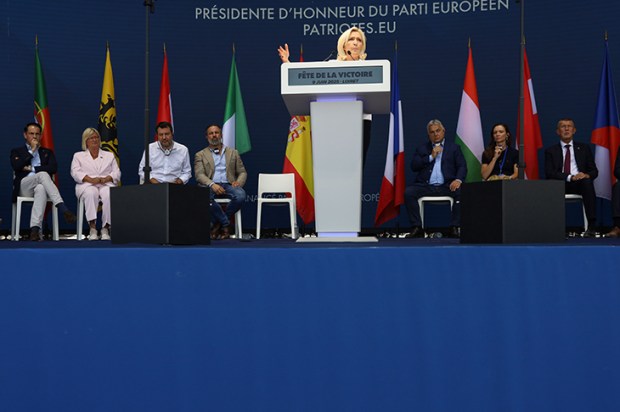Once upon a time, in the mythologies of ancient Greece, there lived a bandit named Procrustes. He offered weary travellers a place to rest, but his hospitality came with a grotesque condition. If a guest were too short for his bed, he would stretch them until they fit. If too tall, he would amputate their limbs to make them conform. His aim was uniformity, achieved through mutilation and torture.
This tale is more than myth; it is metaphor. And in contemporary Australia, it is disturbingly apt. We live in a time where diversity is praised in word but conformity is demanded in deed. Political, economic, intellectual. We are being shaped to fit the government’s preferred frame, not through physical violence but through the subtle coercion of policy, regulation, taxation, and cultural pressure.
This is especially evident under the leadership of Prime Minister Anthony Albanese. His Labor government has accelerated a drift from autonomy to collectivism, from aspiration to dependency. Wrapped in the comforting language of ‘fairness’ and ‘social justice’, the state is reshaping its role from umpire to player, from neutral arbiter to heavy-handed participant.
Labor’s economic agenda provides the clearest example. The push for redistributive taxation, expansive welfare and ever-growing public spending chips away at the principles that built modern Australia: effort, innovation and enterprise. Under the guise of ‘cost-of-living relief’, the government is quietly penalising achievement. The result is a society where increasingly the ambitious are discouraged, the industrious burdened and success is met with suspicion.
Rather than lifting people up, the government seems intent on dragging the high-achievers down, or increasingly, out of the country altogether. This is the Tall Poppy Syndrome, for which Australia is famous, writ large. But as assets possessed by the wealthier are assaulted by higher taxes and the largest and most productive companies singled out for net cashflow and other tax imposts, will the currently well-to-do who pay the bulk of the taxes be allowed to leave? Will controls on capital transactions be put into place to curb capital flight?
With more than 50 per cent of Australians dependent on government subsidies for their livelihood, it is only a matter of time before measures are put in place to trap the top end of the income distribution without whom the welfare dependent that every government has promoted will be unable to survive.
Labor’s climate and energy policies have also deepened the malaise. Green mandates, emission targets, and subsidies are punishing once-thriving sectors like mining and manufacturing. These industries, foundational to Australia’s prosperity, are now in retreat, replaced not with robust alternatives, but with slogans and subsidies. Job security erodes, energy prices surge, and regional communities suffer.
Yet beneath this policy shift lies a deeper cultural transformation. Australia has become a country run on plans. Not ambitions, not principles, not even politics in the classical sense. Just plans, governmental plans. Both the government and opposition are now in the business of developing plans.
Blueprint after blueprint, strategy stacked atop framework, road map beside consultation document. From energy transition to housing affordability, from indigenous recognition to AI regulation, Labor has a plan. So does the Coalition. Different in branding, often nearly identical in content. What unites them is where it begins and ends: in Canberra.
This is the era of central planning. Not the Soviet kind, with five-year quotas and tractor targets, but planning nonetheless. Government by spreadsheet, driven by Treasury modelling, overseen by taskforces, launched with panels of experts and PowerPoint slides. The ministers change, but the logic remains. In Australia, the answer is always another central government plan.
Education policy offers another example of this top-down approach. The push for ‘equity-based’ school funding prioritises demographic disadvantage over academic excellence. It has even been suggested that this Gonskian logic extend to universities. But funding institutions for who they enrol rather than how they perform inevitably leads to mediocrity. The goal shifts from lifting standards to equalising outcomes with outcomes suffering. Standards are lowered, and the incentives to excel are steadily eroded.
Social policy, too, is being filtered through a collectivist lens. From the failed Voice referendum to other identity-based initiatives, we are being categorised by race, class and gender. Policy is tailored not to individual needs but group grievances. The result is a politics of division rather than unity. A society fragmented by identity, rather than bonded by shared citizenship.
Meanwhile, the realm of free expression is narrowing. Australians are increasingly afraid to speak candidly about race, gender, climate or history. Not because of laws, yet, but because of the social and bureaucratic costs of dissent. Speech codes, misinformation Bills and ideological conformity are the new shackles. Dissent is not debated but disqualified.
All of this points to a troubling pattern, the gradual construction of a Procrustean state. One in which people are not celebrated for their differences in drive, talent and ambition, but compressed into sameness. Where policies are judged not by their outcomes but by their intentions. Where freedom is a nice idea, but equality – defined not as opportunity, but outcome – is the overriding goal.
Not all government intervention is inherently socialist. A safety net, public infrastructure, and universal healthcare are marks of a decent society. But there is a fine line between a state that supports and one that suffocates. What makes socialism dangerous is not its intent but its effect: it treats disparity as injustice, success as exploitation and liberty as an obstacle to equality.
Australia once prided itself on being a nation of battlers and builders, not bureaucrats and bean-counters. A land of ‘golden soil and wealth for toil’, not wealth by transfer. That spirit, forged in hardship and defined by resilience, is under threat.
The myth of Procrustes ends with his undoing when Theseus forces him into his own bed.
There is a lesson in that. When a system begins to harm in the name of help, the people must push back. Australia does not need more plans. It needs more freedom. It does not need an iron bed. It needs space to grow, unevenly, imperfectly, and above all, freely.
As Thomas Sowell so powerfully put it: ‘When people get used to preferential treatment, equal treatment seems like discrimination.’ We would do well to remember this.
Got something to add? Join the discussion and comment below.
Dimitri Burshtein is a principal at Eminence Advisory. Peter Swan AO is professor of finance at the UNSW-Sydney Business School.
You might disagree with half of it, but you’ll enjoy reading all of it. Try your first month for free, then just $2 a week for the remainder of your first year.












